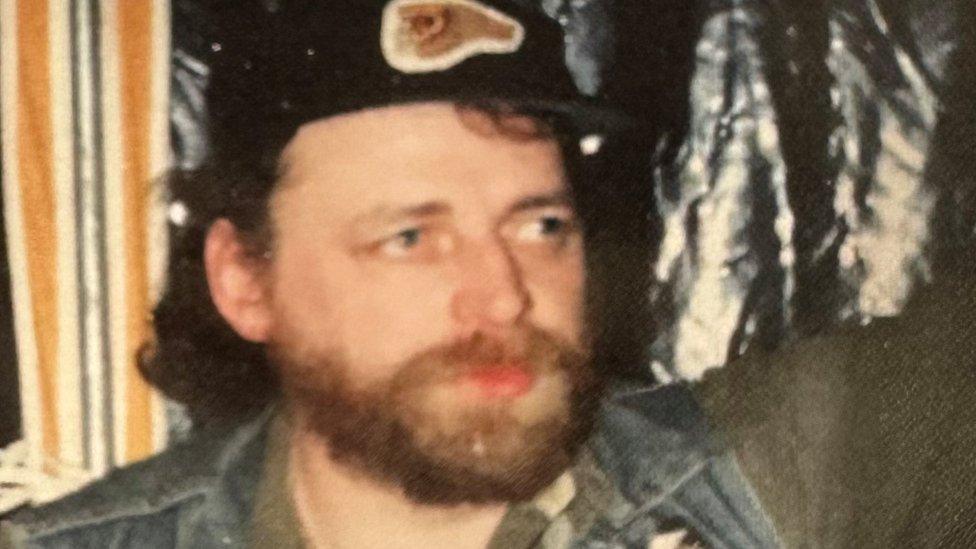Sunderland sepsis death: Michael Brown's condition 'unsalvageable'
- Published

Michael Brown needed a catheter after having a stroke
A man who died after waiting more than 14 hours for an ambulance was in an "unsalvageable position" when he reached hospital, an inquest has heard.
Michael Brown, from Sunderland, died from sepsis in January.
The 67-year-old's carer had called 999 and was told to expect an ambulance within four hours.
But the first crew was only assigned after seven hours and this ambulance, plus two more after that, were all diverted to emergencies.
Kevin Joisce, a consultant who treated Mr Brown at Sunderland Royal Hospital, told the inquest he was "extremely unwell" when he arrived and was "at a very advanced stage of an unsalvageable position".
A decision was made to provide him with end-of-life care and Mr Brown died of sepsis the following day.
Mr Joisce told the inquest at Sunderland City Hall his patient would have had a "higher probability of a different outcome" if he had been given treatment earlier.
Struggling to respond
Mr Brown was bedbound after having a stroke four years previously and needed a catheter, which became blocked on 10 January.
His carer rang 999 at 01:24 GMT and a non-emergency ambulance was to be sent within four hours.
But North East Ambulance Service (NEAS) first assigned a crew to Mr Brown at 08:24.
That ambulance was diverted to an emergency call and a second, allocated at 09:02, arrived near Mr Brown's home 16 minutes later.
But that too was diverted - one minute later - to a more urgent category two call.
A third ambulance was then assigned at 11:02 before also being diverted to an emergency call.
No effective communication
During this time a series of five "ringback" calls were made by NEAS to Mr Brown's partner to check on his condition, the inquest heard.
An ambulance finally reached Mr Brown at 15:39. He was treated by paramedics and taken to hospital, arriving at 16:24.
At the time NEAS was at "level four" under the national clinical safety plan, external, meaning it was struggling to respond on time to potentially life-threatening calls.
There were delays in handovers of patients at hospitals which the trust described as "extremely significant".
A section manager dealing with call handling at NEAS, Denise Moorhead, told the inquest there was concern while Mr Brown was waiting that there had been no "direct contact with the patient".
She said district nurses had been out to Mr Brown's home but could not assist because of the type of catheter he used.
Libby Bell, a NEAS clinical assessment supervisor, told the inquest: "We didn't effectively establish whether there was any effective means of communication with Michael."
The inquest is expected to last two days.

Follow BBC North East & Cumbria on Twitter, external, Facebook, external and Instagram, external. Send your story ideas to northeastandcumbria@bbc.co.uk, external.